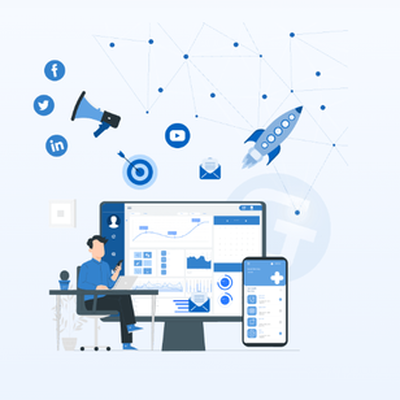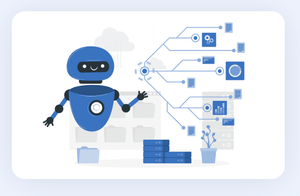Unlocking Success: Mobile Health App Development
Cuerpo
In today's fast-paced world, where time is of the essence and convenience is paramount, the emergence of mobile health apps has revolutionized the healthcare industry. These innovative applications are not just about tracking steps or monitoring heart rates; they are about empowering individuals to take control of their health and well-being right at their fingertips.
Meeting the Demand: The Rise of Mobile Health Apps
With the increasing prevalence of smartphones and the growing awareness of personal health, the demand for mobile health apps has soared. These apps cater to a wide range of needs, from fitness enthusiasts looking to track their workouts to individuals managing chronic conditions like diabetes or hypertension. As the world becomes more digitally connected, the convenience and accessibility offered by mobile health apps make them an indispensable tool for millions.
The Power of Personalization: Tailoring Health Solutions
One of the key features driving the success of mobile health apps is their ability to deliver personalized experiences. Through data analytics and artificial intelligence, these apps can analyze user behavior, preferences, and health data to provide tailored recommendations and insights. Whether it's suggesting personalized workout routines, reminding users to take medication, or offering nutritional advice based on dietary habits, these apps empower individuals to make informed decisions about their health.
Innovation in Action: Advancements in Mobile Health Technology
The field of mobile health app development is constantly evolving, with developers pushing the boundaries of innovation to create more intuitive, feature-rich applications. From integrating wearable devices to harnessing the power of augmented reality for immersive fitness experiences, the possibilities are endless. Furthermore, advancements in technologies such as machine learning and blockchain are paving the way for enhanced security, interoperability, and data privacy in mobile health apps.
Empowering Healthcare Providers: Enhancing Patient Care
Mobile health apps are not just beneficial for individuals; they also play a crucial role in transforming healthcare delivery. By enabling remote monitoring, telemedicine consultations, and seamless communication between patients and healthcare providers, these apps facilitate proactive and preventive care. Moreover, they help streamline administrative tasks, reduce healthcare costs, and improve overall patient satisfaction.
Navigating Regulatory Landscape: Ensuring Compliance and Safety
As the popularity of mobile health apps continues to soar, so does the need for regulatory oversight to ensure safety, efficacy, and data privacy. Developers must adhere to strict guidelines and standards set forth by regulatory bodies such as the FDA and GDPR to bring their apps to market. By prioritizing compliance and adopting robust security measures, developers can build trust among users and stakeholders and foster long-term success.
Looking Ahead: The Future of Mobile Health App Development
The future of mobile health app development holds immense promise, with continued advancements in technology driving innovation and growth. From leveraging emerging technologies like 5G and Internet of Things (IoT) for real-time health monitoring to expanding access to underserved populations through localized and multilingual apps, the possibilities for transforming healthcare are endless. As we embrace this digital revolution, mobile health apps will continue to play a pivotal role in shaping the future of healthcare delivery worldwide.
In conclusion, mobile health app development represents a significant opportunity to revolutionize healthcare delivery and empower individuals to lead healthier lives. By harnessing the power of technology, personalization, and innovation, these apps have the potential to drive













Comentarios